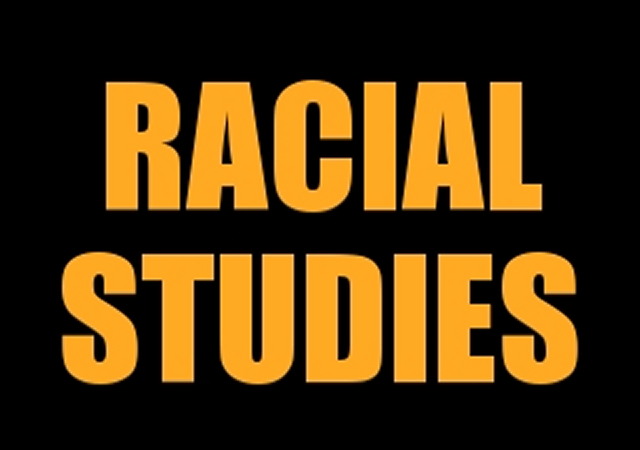California Lawmakers Push College Admissions Priority for Descendants of Slavery
“The entire bill consists of three short paragraphs, two of which merely restate existing state laws.”

Is this just another workaround for the SCOTUS ruling on Affirmative Action?
Minding the Campus reports:
California’s Insanity—Legislators Push Admission Priority for Descendants of Slavery
Race peddlers are at the scheme of reparations again. This time, they are playing the game in higher education, hoping to get progressive government agencies to legislate racial preferences in college admissions. Will they succeed?
California Assemblyman Isaac Bryan of Los Angeles promotes educational benefits for descendants of slaves, whom the state lawmaker says should receive admission priority from California’s public and private universities. Asm. Bryan, incoming vice chair of the California Legislative Black Caucus, believes enacting legislation for such preferences is a “moral responsibility,” necessary for addressing racial inequality and systemic injustices. On December 2, Bryan introduced Assembly Bill No. 7 (AB7) in the California State Legislature, which proposes adding the following paragraph to the state’s education code:
[T]he California State University, the University of California, independent institutions of higher education, and private postsecondary educational institutions may consider providing a preference in admissions to an applicant who is a descendant of slavery, as defined, to the extent it does not conflict with federal law.
A junior state legislator who was not well known by the public until now, Bryan received national press for pushing forward reparations amidst disappointments befallen on the movement. He told the Associated Press that California must “rectify … and heal that harm” from “perpetuating the inequalities that arose from slavery.” In this sense, the effort to provide admissions preferences for descendants of slaves goes beyond cash reparations. It is “a much bigger process” about repairing the inequality. Just to rub it in, Bryan also said his measure is partly a response to Trump’s war on “diversity, equity, and inclusion” (DEI) programs.
AB 7 is sponsored by many “A-list” California Democrats, including Assemblywoman Mia Bonta, wife of the State Attorney General Rob Bonta, and State Senator Akilah Weber, daughter of the California Secretary of State Shirley Weber. The entire bill consists of three short paragraphs, two of which merely restate existing state laws. In a move that can be interpreted almost as an insult, the proposal notes that the California Constitution prohibits racial preferences in public education, as spelled out in Proposition 209, approved by over 55 percent of the electorate first in 1996 and defended by 57 percent of California voters in 2020.
Donations tax deductible
to the full extent allowed by law.








Comments
Every year, we commemorate that my ancestors were slaves in Egypt. Does this mean that my kids will get priority in admission at CA schools?
Somehow I don’t think this s what California has in mind.
What CA has in mind is simply assuaging their white liberal guilt that has been promoted by critical race theory. There never has been slavery in CA.
Hence “as defined”.
The bill applies to “a chattel enslaved person of American chattel slavery.” I am unsure what that really means. Is the Carribean a part of “America?” So, if my ancestors escaped from Haiti. does that count? What about South America — would someone enslaved by Incas count? What does “of” mean? Does the “one drop rule” apply. If Elizabeth Warren’s indigenous ancestor was enslaved does that count?
How do I prove that my ancestors’ enslavement was “chattel slavery”? What about Asian Americans who were brought here to work on the railroads?
Elizabeth Warren has no indigenous ancestor.
It seems ironic that the effort to abolish slavery in the US through the Civil war resulted, among other things, in the 14th amendment which prohibits what is being proposed. If these institution admissions officers are honest then the suggestion that they “may consider providing a preference in admissions to an applicant who is a descendant of slavery, as defined, to the extent it does not conflict with federal law” should be empty as it would conflict with federal law.
To change the subject a bit, the Equal Protect Clause is the basis for Brown v Board of Education and the holding that “separate is not equal.” Most HBCUs were started between the end of the Civil War and 1890 when Congress passed the Second Morrill Act that required states that did not allow blacks to attend the Land Grant College of that state to set up a separate school.
California never segregated their colleges. Would it be a violation of the Equal Protection Clause if the legislature set up a separate state-funded HBCU now instead of adopting this legislation?
If one is serious about the Equal Protection Clause, it is difficult to understand federal funding of HBCUs.
No, but it would violate the English language. A brand new institution can’t be historically anything.
You seem to have missed the H in HBCU. There is no more problem with federal funding of colleges that were historically black than there is of colleges that were historically religious seminaries.
Cui bono?
It would appear that this has nothing to do with reparations;
rather, it’s a way to lure naive families into taking out thousands in student loans.
The colleges will get their money one way or another..
What a scam
Buyer beware.
No, it doesn’t. What you’re looking at is not the bill but the legislative counsel’s digest, explaining the bill. It’s standard for such digests to set the context by giving the current legal situation and then saying what changes the bill would make.